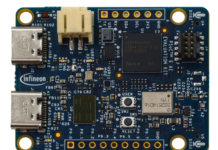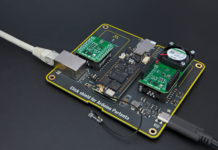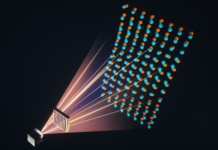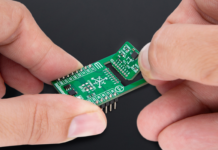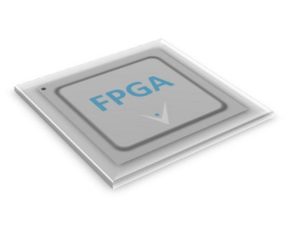
FPGA’s have always been a prime choice for designers because of its flexibility to configure. Their reprogrammable and reusable feature makes them the great fir for prototyping purposes – especially for ASIC validation purposes. Market have embraced the AI based solution and applications, but it comes with challenge of transferring data faster and improving overall performance of AI based solution. AI together with FPGA’s solves these challenges.
According to Sammy Cheung, Co-founder, CEO and President-Efinix, Sammy Cheung, Co-founder, CEO and President-Efinix, “It’s a natural evolution for all the FPGA users to use FPGA to add their AI applications. The nice part about FPGA is its established ecosystem for development workflow and IPs that allow users to safely upgrade that product to AI driven.”
Earlier this year, Efinix was in news for its Trion T20 series FPGAs volume production. Efinix recently announced that now its Trion FPGAs include hardened MIPI CSI-2 interfaces and have demonstrated it at MIPI DevCon Taipei (October 18th).
Trion FPGAs enjoy special status as they are built on Efinix Quantum™ technology. The Efinix Trion programmable platform delivers substantial Power-Performance-Area advantages over traditional FPGA products. Trion FPGAs feature programmable logic and a routing fabric built using Quantum technology.
The fabric is wrapped with an I/O interface in a small footprint package that is required by many high-volume applications such as mobile and IoT. In addition to logic and routing, the fabric includes embedded memory blocks and multiplier blocks (or DSP blocks).

Trion FPGA Block Diagram
The initial phase of the Trion platform is built on SMIC’s 40LL process, with a logic density range from 4K to 200K logic elements (LEs) and standard interfaces such as GPIO, PLLs, oscillators, MIPI, DDR, LVDS, PCI Express, etc.
Quantum FPGA fabric is built with only seven layers of metal and standard silicon process. This makes the technology silicon process and foundry agnostic. This advantage enables Quantum FPGA to be a licensable AI core that can be integrated with various SoC solutions outside standard FPGA device domain.
The MIPI CSI-2 interface, which defines a simple, high-speed protocol, is the most widely used camera interface for mobile (source: MIPI Alliance). Adding a MIPI interface to an FPGA creates a powerful bridge to transmit or receive high-speed video data easily to/from an application processor.
Video has dominated the world whether in mobile and mobile-influenced devices like machine vision, drones, robotics, automotive, and surveillance cameras. To support video based needs of manipulation, analysis and interpretation, Trion FPGAs include hardened MIPI CSI-2 interfaces. Trion FPGAs with MIPI support a range of applications from simple bridging and to complete AI applications. They can synchronize and process images from multiple cameras or sensors, or can act as a pre-processing hub or hardware accelerator in a bigger system.

Trion T20 MIPI Development Board Block Diagram
With multiple hardened MIPI Camera Serial Interface 2 (CSI-2) transmitter and receiver controllers, D-PHY℠, and 13K to 120K logic elements, Efinix MIPI-enabled Trion FPGAs are flexible, programmable platforms that can perform complex video processing for mobile, machine vision, robotics, automotive, and surveillance applications.
The Trion T20 MIPI development kit, is based on the T20 FPGA and lets you to explore the features of this easy-to-use, I/O-rich FPGA. The kit includes a Trion T20 MIPI Development Board (preloaded with a demonstration design), a MIPI and LVDS Expansion Daughter Card, 2 Raspberry PI Camera Connector Daughter Cards, a USB cable, standoffs, nuts, and screws.
Along with it, Efinix offers Efinity Software Support which helps you to create designs for the Trion development kit using the Efinix Efinity© software. The Efinity software provides a complete tool flow from RTL design to bitstream generation, including synthesis, place-and-route, and timing analysis. The software has a graphical user interface (GUI) that provides a visual way to set up projects, run the tool flow, and view results. The software also has a command-line flow and Tcl command console. The software-generated bitstream file configures Trion devices. The software supports the Verilog HDL and VHDL languages.
The Trion T20 MIPI Development Kit is available now at Efinix online store. To register for store access at www.efinixinc.com/shop.



